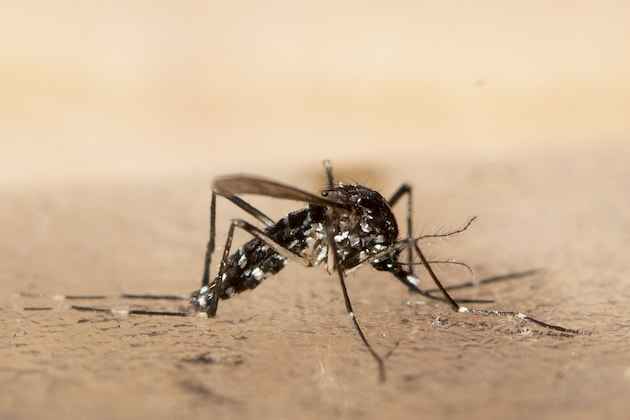It’s the holiday season in Germany and many people are traveling. This could also drive up the number of dengue virus cases. What symptoms there are and when you should see a doctor.
Dengue is a viral infection that can lead to a feverish illness (“dengue fever”). According to the Robert Koch Institute (RKI), for many decades the dengue virus was found almost exclusively in tropical and subtropical regions, especially in cities. In recent years, however, it has spread further geographically. Dengue virus cases have now been reported in Spain, Italy and France.
According to the RKI, there are around 1,000 diseases every year in Germany. However, so far these have only been imported infections, mostly from Southeast Asia. Almost every third disease was acquired in Thailand.
However, most infections, around 75 percent, have no or mild symptoms. However, if symptoms do occur, they can be very painful. Dengue fever is therefore sometimes called “bone-breaking disease”.
The most common symptoms include
Signs usually appear four to 10 days after a mosquito bite (a yellow fever or tiger mosquito that has previously bitten an infected person and is now carrying the virus). If symptoms are severe, those affected should consult a doctor immediately.
In around one percent of cases, severe dengue fever develops with shock, coagulation disorders, bleeding and multi-organ failure. Warning signals include persistent vomiting, shortness of breath, bleeding from the mucous membranes, an enlarged liver, but also behavioral changes such as lethargy or restlessness. However, severe cases usually only occur with the second dengue infection.
There is currently no antiviral treatment for dengue. Two vaccines are approved. The first – Dengvaxia from Sanofi – is now limited to people aged nine to 45 who live in an endemic area and have previously had a dengue infection due to complications in healthy people who have not yet been infected. The second – Takeda’s Qdenga – was only approved by the EU Commission in December; it has fewer side effects.
In addition, anti-mosquito sprays, mosquito nets and long clothing help to avoid bites. Also remove small open water points, such as flower pots, rain barrels or old car tires. These are potential breeding grounds for the eggs of the Asian tiger mosquito.
According to the RKI, almost four billion people worldwide live in dengue fever risk areas. It is estimated that around 400 million people are infected with the dengue virus every year.
Experts assume that there will also be cases of dengue virus acquired in Germany in the future. “It’s just a matter of time,” said virologist Jonas Schmidt-Chanasit to “SWR”. Because: “The tiger mosquito is also spreading in Germany.” According to the RKI, it occurs in Baden-Württemberg, Hesse and Rhineland-Palatinate, but also in places in Fürth, Jena and Berlin.
And: The larger this tiger mosquito population, the greater the risk that they will bite someone returning from a trip and that local cells will then develop, emphasizes the virologist. However, he also reassures: “We are not talking about large outbreaks here, but rather individual cases, smaller clusters, because then we simply have temperatures in autumn that no longer allow transmission.”









